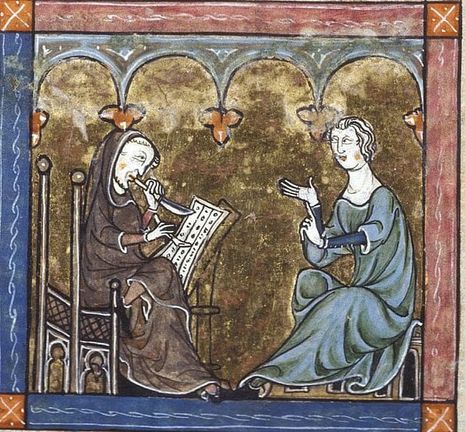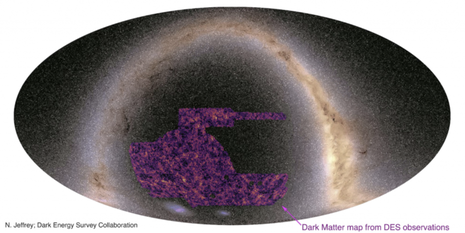A month in Cambridge science: Breakthroughs in dark matter, assisted reproduction and medieval monks
From medieval monks to climate justice and dark matter, the Science team highlight ground-breaking developments in Cambridge research this April

Cambridge has seen a month full of scientific discovery, innovation and clinical breakthroughs. Varsity’s carefully curated showcase of scientific research breaks down the findings that you need to know about!
Historically, medieval monks dutifully recorded volcanic eruptions in their chronicles, hoping to predict the end of days as described in the Book of Revelation.
However researchers are now using them, along with data collected from ice cores and tree rings, to record eruptions around the world during a particularly volcanically active period, which is thought to have caused the little ice age.
An international team of researchers, including researchers from Cambridge, have been scouring the historical record for mentions of total lunar eclipses. These eclipses occur when the Moon passes into the Earth’s shadow, typically turning the Moon to a reddish hue. Volcanic eruptions however spew dust into the stratosphere, which blocks out enough light to darken the Moon entirely.
Cambridge professor takes climate justice to court
A Cambridge professor, Jorge Viñuales, has assisted students from the South Pacific in helping climate-embattled Vanuatu to take the question of global warming to the International Court of Justice.
The Pacific island nation put a resolution to the UN general assembly asking the ICJ to pay particular attention to the harm experienced by small island developing countries that are particularly vulnerable to the effects of the climate crisis.
“Frustration among the public is mounting as COP follows COP”
While not legally binding, Viñuales says that any opinion from ICJ judges on climate change will be transformative for climate justice. “It will set legal precedents that can be used in courts the world over.”
“Frustration among the public is mounting as COP follows COP, warnings become increasingly dire, yet the major polluting nations dither and delay. The president of COP28 will be an oil executive. How can the public be expected to buy that?” says Viñuales.
There’s nothing wrong with assisted reproduction
A landmark study from family researchers at the University has found that there’s no difference in the psychological well-being or quality of family relationships of children that were born using egg/sperm donation or surrogacy compared to those born naturally.
“Despite people’s concerns, families with children born through third-party assisted reproduction – whether that be an egg donor, sperm donor or a surrogate – are doing well right up to adulthood,” said Prof Susan Golombok, who led the research team.
The study recommended that telling children about their biological origins before they start school can help family relationships.
A Repurposed HIV drug could help slow down dementia
“Drugs that could protect the brain’s natural ability to keep itself healthy would have huge potential for limiting the number of people whose lives are devastated by conditions like dementia. This sort of promising, early-stage research is a vital building block towards future treatments, which depend on innovative approaches like this emerging from labs,” said Dr Rosa Sancho from Alzheimer’s Research UK, the main funder of the research.

Dark matter images support Einstein’s theory of gravity
Understanding dark matter is a challenge for modern physics: how can you observe the behaviour of something that cannot be seen? Cambridge physicists have developed new techniques to map out the spread of dark matter in over a quarter of the night’s sky.
New imaging by researchers from the Department of Applied Maths and Theoretical Physics reveals the most detailed map of dark matter distributed across a quarter of the entire sky, reaching deep into the cosmos.
Working in collaboration with Atacama Cosmology Telescope, the research has helped to confirm predictions made by Einstein’s theory of general relativity and could lead to a better understanding of the structures dark matter forms.
 News / Colleges charge different rents for the same Castle Street accommodation2 March 2026
News / Colleges charge different rents for the same Castle Street accommodation2 March 2026 News / News in Brief: waterworks, wine woes, and workplace wins 1 March 2026
News / News in Brief: waterworks, wine woes, and workplace wins 1 March 2026 News / Angela Merkel among Cambridge honorary degree nominees27 February 2026
News / Angela Merkel among Cambridge honorary degree nominees27 February 2026 News / Climate activists protest for ‘ethical careers policy’1 March 2026
News / Climate activists protest for ‘ethical careers policy’1 March 2026 News / King’s hosts open iftar for Ramadan3 March 2026
News / King’s hosts open iftar for Ramadan3 March 2026









